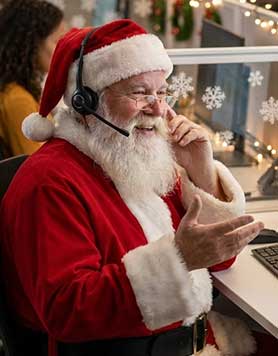
How do Flight Fares Fluctuate high and Low
You have probably purchased a flight in the past where someone else was able to get a better deal. The cost of flights might fluctuate. Apparently, in a matter of seconds, the cost of the same ticket may increase or even decrease.
It also sounds odd and shocking, if like a thing at the shopping place, the price would be the same even after some days, or you liked something at the restaurant and the food you liked won’t get costly in a few minutes or days. So what makes airlines different in this? Why is there a constant fluctuation in airline prices?
Well, the answer consists of many things, like competition, demand, time, day of the weak, and season. When combined they are known as Revenue Management, the airline uses it to buy the suitable ticket to the suitable person with the right price.
A proper balance is required to increase revenue and sell as many seats as possible. To increase revenue, the airline has a variety of strategies, which we will discuss further in this blog. In the end, this will decide the price you pay for a specific route at a specific time—yes, time matters when it comes to flight costs. Here are some factors that can significantly impact the price of the airline ticket:
Demand
The most important factor that affects flight prices is demand. When we study any business it starts with the concept of supply and demand. As there is an increase in demand the supply decreases and the airline algorithm automatically makes changes in the flight prices after reading all the factors.
Even for the same pricing class, airlines pre-define different fare sections. When flights are first made available, tickets are usually the lowest. Prices naturally tend to rise as more tickets start to sell. Revenue is maximized in this way. The cost of flights will keep going up when each fare section fills up.
But this is not always the case, sometimes airlines become desperate to fill every seat as the departure date comes, and to boost the demand lowers the prices because every empty seat is ultimately a loss to the airline.
Competition with competitors
Another big factor that causes price fluctuation, airlines do keep an eye on their competitors. If one airline drops its flight prices, others will do the same and this is called price matching. And after a fixed level they are not allowed to drop the prices as it can keep everyone at a loss.
Competitors have no problem giving up income in the hope of gaining market share. Due to a lack of competition, certain local airlines often take advantage of the high cost of flights to minor airports.
Time
Time is another crucial factor for price fluctuation, prices may fluctuate a lot within weeks or months. The airline uses historical data to strategize its pricing to determine the maximum balance of sales and earnings in a particular duration. Sometimes last-minute booking can get too expensive but sometimes it might get low, so relying on last-minute booking is not a good idea. Airlines know that last minute deals are desperate and take some benefit out of it.
Weekdays and weekends
Every passenger who travels by air must be aware that prices also vary by the day of the week, Tuesday is considered to be the cheapest day to fly. Travelers going for business usually make more weekly demand and usually fly on Monday and get back on Friday or Thursday. Compared to weekends people have holidays to go for a vacation or to meet their loved ones and as the demand increases, the price too.
Seasons
Some destinations are subject to visit on seasons or other factors, here season refers to the most crowded and busiest time in the year. Peak travel days such as New Year, Diwali, and Christmas can make the flight price go higher than any other normal day. On the other side, off-season means non-peak time tickets are sold at lower prices. So, ultimately season is another factor that can impact the flight charges in a big way.
Purchase in advance and minimum stay needs
Some flights do need a booking no matter whether the flight is full or not, as the departure date comes closer, the price will increase. Sometimes even a one-way ticket is more expensive than the round-trip, this happens because of minimum stay requirements.
The date and time of your return trip for getting a specific rate is determined by these requirements, business travelers should pay more as it is affordable for them. Airlines do charge extra for no minimum stay limitations since people traveling for business love to spend weekends with their loved ones at home.
Some external and extra factors
As we know nothing can be accurately predicted, we have discussed the factors that can cause price fluctuation but some economic factors at a large level can impact flight prices too. For example cost of fuel, almost 30-40% of the cost to operate a flight comes from fuel expenditure. Ticket prices may significantly rise if there is an increase in fuel prices. The cost of flights may also fluctuate due to an unexpected increase in demand. For example, if a nation that was previously on the travel ban list is taken off of it, more people will travel there.
FAQ’s
How would I come to know if the price of my flight would drop
There are many ways, one of which is you can set up a fare alert, which will notify you when the price goes down, and you can book at that price.
How do airlines decide when to increase or decrease the price
Well, that depends on several factors like demand, time, etc. The airline uses historical data to decide its prices which is a lengthy process.


